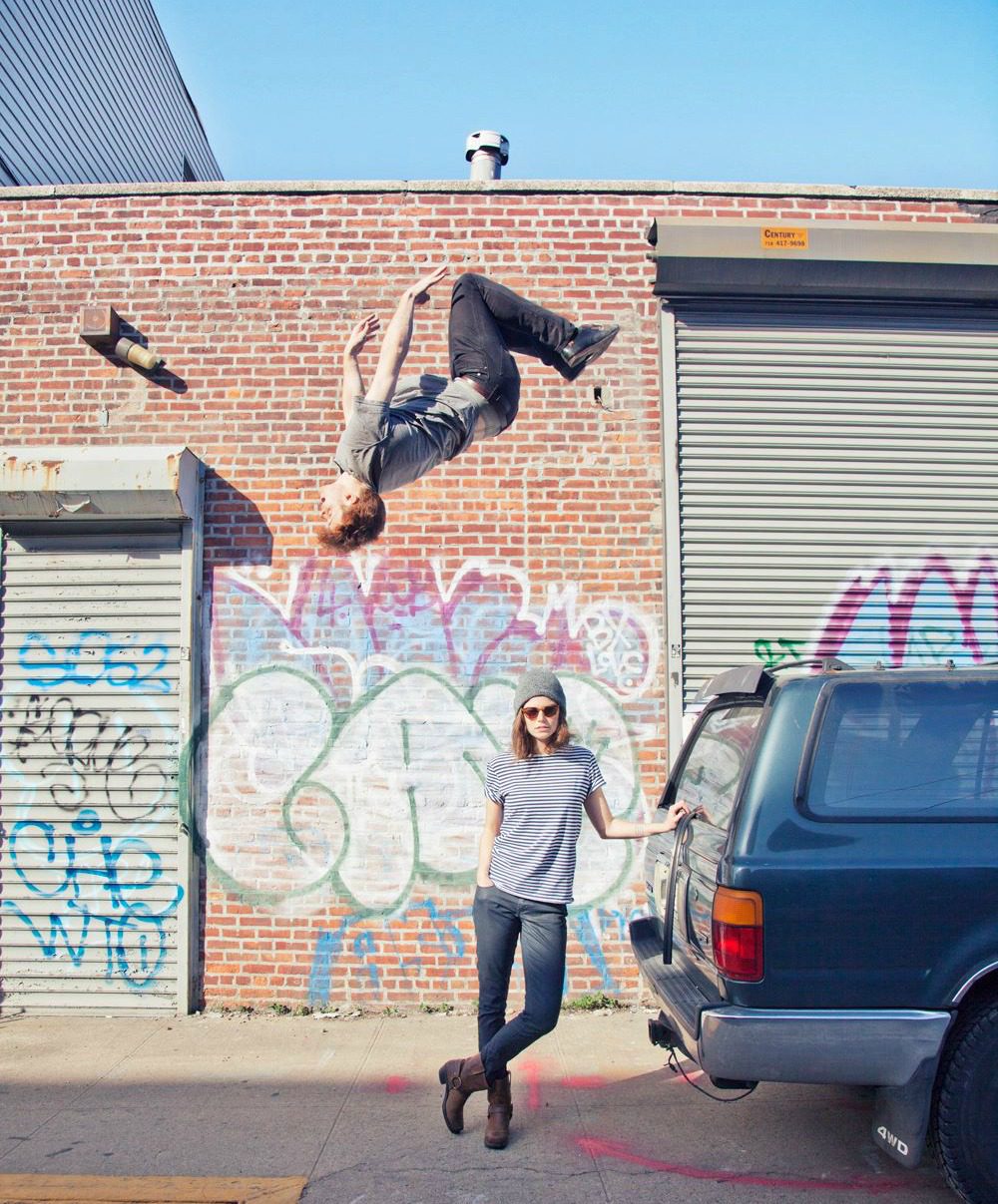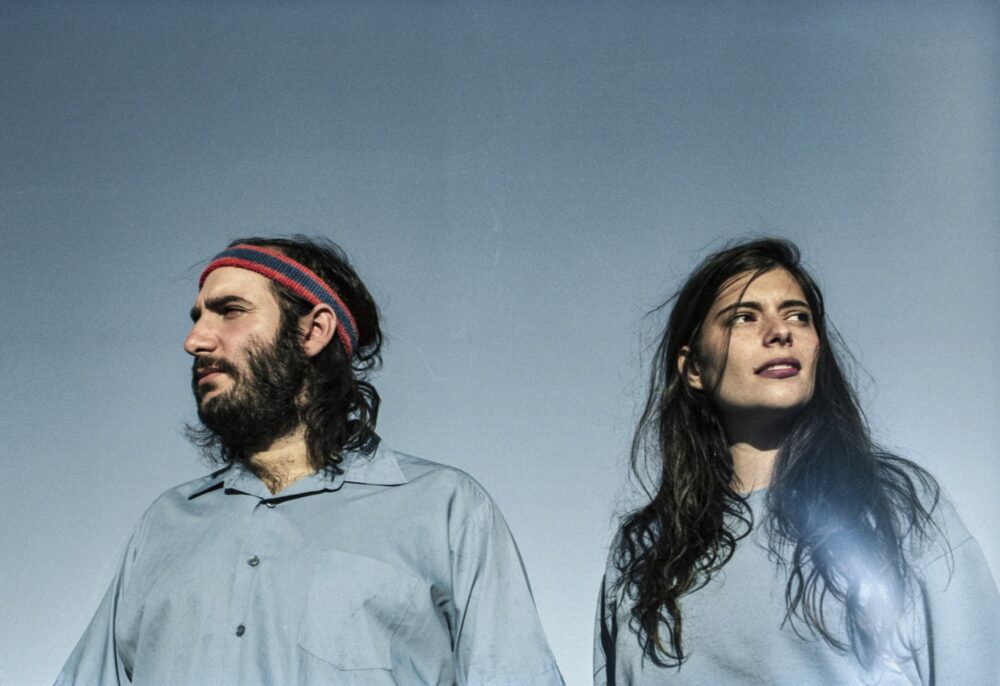

There’s no question that one of the best things to come out of this absolute shitshow of a year has been Bandcamp Fridays; the first Friday of every month, the music streaming platform waives its revenue share to provide an extra boost to struggling artists who use it to promote their music. Though the difference in percentage of profits that goes into the artists’ pockets is somewhat negligible given its already artist-friendly pay structure (a recent post updating the schedule for 2021 puts it at 93% versus 82% on any other day of the month) the crucial aspect of Bandcamp Fridays is that it boosts visibility for the most essential workers in the music industry – musicians and labels themselves.
No doubt equally inspired by Bandcamp Fridays as it was by indie label 7″ subscription clubs of the ’90s, Brooklyn imprint Mexican Summer is going the extra mile to shake things up with a Bandcamp-centric series they’ve dubbed Looking Glass. It’s a virtual treasure trove of unique, previously unreleased singles, by everyone from label stalwarts like Ariel Pink and Connan Mockasin to more obscure psych, folk, and drone artists like São Paulo’s Sessa, Tokyo’s Kikagaku Moyu, and Chicago’s Matchess.
The first series ran from April 2020 to late July 2020, featuring beautiful, mysterious cover art by Bailey Elder (at one point, Mexican Summer offered a free download of her clip art-esque illustrations as a “coloring page”). After a brief lapse, the series started up again in October with “Love’s Refrain,” a gorgeous instrumental Jefre Cantu-Ledesma song with all-new vocals by Julie Byrne (Elder reprised her role as cover designer, this time with watercolory collages in muted hues), and has gone on to feature the likes of hip hop upstart Nappy Nina alongside celebrated dub duo Peaking Lights and avant-country singer Dougie Poole. So far, the series boasts over thirty entries that represent the label’s penchant for supporting adventurous sounds, whether the contributors are officially signed or not.
The label posits that the project “focuses on the human condition as reflected through chance and destined encounters” and is “a portal for creative exploration and community to resonate through all versions of reality… to encourage discovery, diversity, and collaboration.” While that’s a pretty heady sentiment, Looking Glass somehow more than accomplishes the task.
It’s an ethos that’s especially in line with that of Los Angeles-based minimal wave synthpop artist Geneva Jacuzzi. “Maybe I’m a person who was destined to be miserable but who refused destiny and the only way to alter the cosmic DNA was to hack the matrix,” she riffs. “That is pretty much what music is. It hold secret codes to alternate universes.” She likens music to a secret, primal language. “That is how communities of people come together over music. They are all part of the same alien tribe and the music is more alive than they are.” Her entry into the singles series, “Dark Streets,” was originally part of an ongoing conceptual performance and video play called Dark Ages that spanned from 2011-2015; she created a stand-alone video for “Dark Streets” in 2012, but the song was never officially released.
“The inspiration came one evening when I was recording and wanted to encapsulate the feeling of driving aimlessly into the night… looking for something but not knowing what… and then encountering certain dark forces that guide you into oblivion. Almost like looking for trouble, or meaning, or an adventure but finding yourself lost and a little scared. Pre-GPS you know?” Jacuzzi explains. “In a way, it seemed fitting for the time we are all in. It’s been a little scary and uncertain. Me being an optimist, I thrive in times of uncertainty because I know there is always an interesting surprise waiting in the unknown, even if it feels dark or freaky.” This, she says, made it a good fit for Looking Glass.
Though closely associated with some of Mexican Summer’s marquee acts, Geneva Jacuzzi has remained staunchly DIY, rarely putting out traditional releases in the nearly twenty years she’s been actively making music. But her experience with Looking Glass might change all that; though still tight-lipped, she says she and Mexican Summer have “some fun things planned for the future.”
“If we don’t change, we die right?” she jokes. “Or at least get depressed and bitter.”
Madison McFerrin channeled some residual bitterness into her piano-driven single for the Looking Glass project, “Hindsight.” Though it sounds like a typical ballad about love gone wrong (“How should I let you go/With nothing left to show/Was it right for you to stay?/Was it wrong to walk away?/Could’ve said we went for it…”) but rather than a romantic partner, McFerrin says the track was inspired by disillusionment with the Democratic primaries, in which Joe Biden won the party nomination over the decidedly more progressive Bernie Sanders. “Sonically, ‘Hindsight’ is like going through the five stages of grief: denial, anger, bargaining, depression and acceptance. I like to think that, like the song, we’ll be leaving 2020 on a hopeful note,” McFerrin says.
Though not specifically written for the series, McFerrin adds that she was “really drawn to how Mexican Summer were making the Looking Glass project Bandcamp-focused” when the label reached out to her over the summer asking if she would participate, and she made the decision to self-produce the track. “I wanted to push myself. Quarantine afforded me the time to really work on production and I felt confident enough to share that next phase of my artistry,” she says. “This was the first time I had been in a studio since the start of COVID, so my biggest challenge was feeling one-hundred percent comfortable. There’s always this neon PANDEMIC sign flashing in the back of my mind these days. But when I actually started playing and singing, it made me feel much more relaxed.”
As for the political work still to be done, McFerrin says, “We have to make sure that we continue to engage, especially locally. Mutual aid groups like Bed-Stuy Strong in Brooklyn are doing great work providing food and cleaning supplies to those most vulnerable to COVID-19 in the community. Through grassroots movements, hopefully we can continue to grow the progressive movement and push the people at the top.”
As it turns out, the Looking Glass series can help with that, too – some of the artists, like Texas-born, L.A.-based folk singer Jess Williamson, have opted to donate the proceeds from single sales to various organizations. Williamson released 2018’s Cosmic Wink and this year’s stunning Sorceress via Mexican Summer after self-releasing two previous records and an EP; as their titles would imply, Williamson has a bit of a witchy streak, and is donating proceeds from her swooning, dreamy “Pictures of Flowers” to Harriet’s Apothecary, an “intergenerational Brooklyn-based healing village led by Black Cis Women, Queer and Trans healers, artists, health professionals, magicians, activists and ancestors… rooted in the wisdom of our bodies, our ancestors and our plant families.”
“I wanted the proceeds from the song to go to them because I really admire the work they’re doing,” Williamson says, which includes expanding access to health and healing resources that support Black, Indigenous and PoC communities.
The song itself was directly inspired by Williamson’s quarantine experience, which was compounded by both the end of a significant relationship and being unable to tour to support her new album. “I spent most days walking around my neighborhood, and I was struck by how different it felt to me at that time versus when I first came to the neighborhood over four years ago,” she says.
She sent a demo of the song to Hand Habits’ Meg Duffy, who plays slide guitar over Williamson’s contemplative acoustic guitar and lilting vocals. “Meg was the first person to hear the song, and I was really nervous they wouldn’t like it. Thankfully, Meg responded positively, and I got the courage to ask if they’d be down to lay some guitar down remotely,” Williamson says. “Normally I’d be afraid to ask, but we were all sitting around doing nothing so I think I had that working in my favor, ha. Meg recorded everything from their home studio, I recorded from mine, and then I sent everything to Jarvis Taveniere who laid down drums, bass, and mellotron, and mixed it.”
“Pictures of Flowers” is a heartbreaking time capsule, juxtaposing the freedom Williamson felt pre-pandemic with what seemed like the end of the world. “Taking vitamins/Calling all my friends/Momma’s feelin’ calm/She trusts the president/Don’t wanna get a gun/What if I move in with someone?/Grow a garden in case the stores all run out,” she sings, ending the track with the trail of a dangling thought: “I had a dream we were in Japan…”
Similarly, experimental composer Lucy Gooch let dreams inspire “We Carry,” her contribution to Looking Glass – though hers was a recurring dream she’s had since childhood. In it, she and her sister are at school and the playground tarmac turns to glass, revealing “a deep, dark ocean in which enormous sea-creatures weave and dive.” Gooch says “We Carry” was “one of those rare songs that appears quickly,” though it was already recorded when label co-founder Keith Abrahamsson reached out to her about contributing something. “I’ve always been a big fan of the label so it was pretty amazing to hear from him,” Gooch says. “I see the song as being a kind of hymn to blurry memories, and to childhood.”
The UK-based synth artist represents an emerging name in ambient music, her sound akin to Kaitlyn Aurelia Smith (who, incidentally, contributed a track called “Lagoon” to Looking Glass). Gooch released her debut EP Rushing in May of 2020, which “comprised looping and more labored arrangement,” she says. “‘We Carry’ was the first song I wrote without any looping and it reminded me that sometimes it’s better to lean into more traditional songwriting methods, rather than trying always to subvert them. I like music that has enough space in it, but that still plays with more intricate ideas.”
Across the Looking Glass series, that balance can be found in spades. Whether based on alien languages, or a dream within a dream, or hope in the face of an epic letdown, music’s ability to connect all of us – especially in a year of such jarring disconnect – transcends genre and remains its most enduring quality. After more than a decade of releasing soul-stirring records, the folks at Mexican Summer have learned to celebrate this wholeheartedly, and the Looking Glass singles reflect their mission brilliantly.
Follow Mexican Summer on Instagram for ongoing updates.




